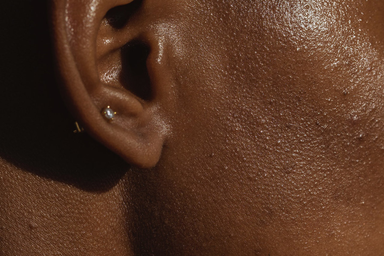How to Spot Skin Cancer In Every Skin Tone

As a dermatologist, I preach the importance of sun protection to every patient and have done so for years. While it is true that skin cancer in darker skin tones is not as common as it is in those with fair skin, it is also true that when it does occur in darker skin tones, it’s often more deadly for individuals with darker skin tones – this was the case for Reggae legend Bob Marley, who died of a melanoma.
According to the Skin Cancer Foundation, skin cancer accounts for 2-4% of all cancers affecting African American, Hispanic, and Asian populations. However, skin cancers within these demographic groups tend to be more deadly because of delayed diagnosis and sometimes more aggressive nature.
Skin cancers are named for the level within the skin in which they develop, and the three most common types of skin cancer are Basal Cell Carcinoma (BCC), Squamous Cell Carcinoma (SCC), and Malignant Melanoma (MM).
While anyone can develop skin cancer, you are at an increased risk if you:
- Spend significant time outdoors (i.e., sports, work, driving)
- Are actively sun tanning – whether outdoors or in a tanning salon
- Have a first-degree relative who has had a form of skin cancer (i.e., melanoma)
- Experienced a thermal injury (i.e., burn, radiation treatment)
- Are immunosuppressed due to medication, organ transplants, certain diseases such as lupus
- Have HPV
- Smoke
Early diagnosis leads to a better prognosis and an improved survival rate. Here are some tips to spot potential skin cancer:
Check Yourself Regularly
While skin cancer is thought to occur only on sun-exposed skin, it can and does occur on skin where the sun doesn’t usually hit. For example, malignant Melanoma occurs more commonly on the hands and feet of African-Americans, and Squamous Cell Carcinoma often occurs in the groin. Unlike many cancers, skin cancers generally do not cause pain.
Examine yourself in the mirror and take note of any growths or spots. Consider taking a photo to know if change occurs over time. Make sure you check every crack and crevice of your body. When seeing specialists make sure to:
- Ask your Dermatologist to perform a skin cancer screening exam
- Ask your hair stylist to check your scalp periodically
- Ask your GYN to check down below during your annual exam
- Ask your dentist to check your oral cavity, including under your tongue
- Ask your ophthalmologist to check the back of the eye with a dilated exam
If You See Something, Say Something
Make sure you bring your concerns to your doctor if:
- Any of your spots or moles are changing or behaving differently (growing, changing color, changing shape, bleeding, or not healing within a reasonable amount of time).
- Know your body. For example, a bug bite, a scratch, or a pimple should probably heal in a week or two weeks. If it has been a month or two months, or if it has healed but has started to bleed for no reason, that is not normal. That is an indication that it should be looked at.
- You have a new spot that was never present before
See A Board-Certified Dermatologist For Diagnosis
Utilize Vaseline x HUED’s directory of dermatologists and practitioners to meet with a provider who understands the care that skin color needs.
To diagnose skin cancer, a biopsy is performed by your dermatologist. A biopsy is an in-office procedure done with local anesthesia (the same procedure that a dentist would use for a filling). A biopsy procedure is when a small sample is taken and sent to a dermatopathology lab, in which results are typically available within 5-10 days.
While keeping these steps in mind for detection, it’s equally important to take care of your skin daily because prevention is key! Remember to always be SUN SAAVY with these tips:
- Wear a broad spectrum (UVA/UVB) sunscreen every day (SPF 30 or greater)
- Put on enough sunscreen (a glass full) to cover your arms, legs, and face
- Reapply every 2-3 hours
- Wear a hat/visor
- Wear sunglasses
- Avoid prolonged direct sun exposure
Brooke A Jackson, MD
Medical Director Skin Wellness Dermatology Associates
@DrBrookeDerm


